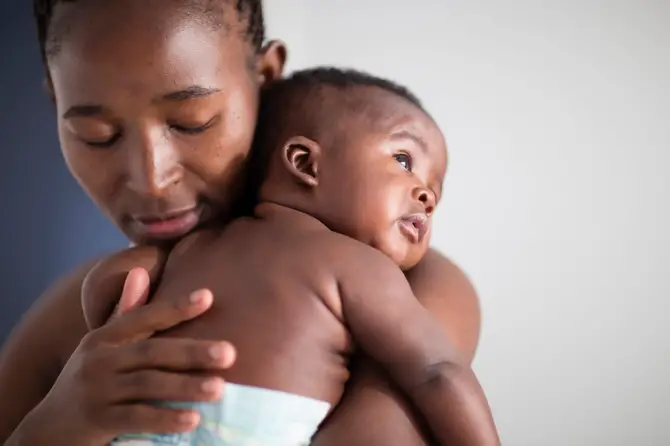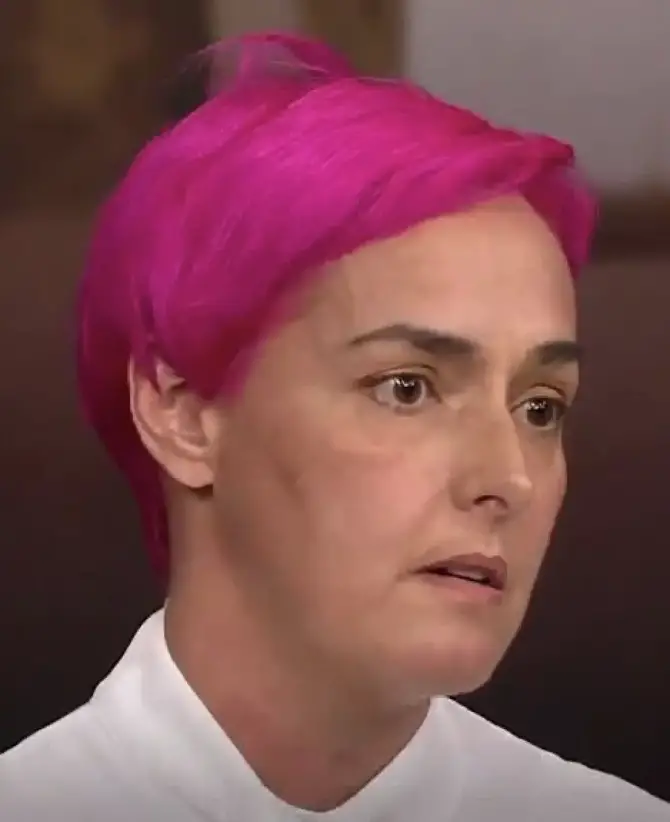An author and educator specializing in s**uality and consent, Deanne Carson, has recently found herself at the center of a heated debate after suggesting that parents should ask their babies for permission before changing their diapers. Her comments, shared during an ABC News segment on consent laws, sparked widespread discussion and controversy, with many questioning the practicality and implications of such an approach.
Carson explained that her suggestion aims to foster a “culture of consent” within families, starting from the earliest stages of a child’s life. While she acknowledged that a baby cannot verbally grant or deny consent, she emphasized the importance of creating a space for non-verbal communication. According to Carson, waiting for eye contact or observing a baby’s body language before proceeding with a diaper change can instill the idea that their responses and feelings are valued.

The Concept of a ‘Culture of Consent’
Carson’s perspective is rooted in the idea of modeling respect and communication from infancy. She offered an example of how this practice could be applied: “I’m going to change your nappy now, is that OK?” While the baby obviously cannot respond verbally, the pause allows for a moment of interaction, teaching the child that their body and autonomy are important.
However, this viewpoint has been met with strong reactions on social media, where many people have voiced skepticism and even ridicule.
One commenter wrote, “I can remember saying things like, ‘Time to change the diaper!’ or ‘Let’s get a clean one on!’ But asking an infant permission? That’s beyond comprehension.” Another added, “When their diaper needs changing, they cry! That’s their way of telling you they’re uncomfortable. Why overcomplicate something so simple?”

Some individuals went further, questioning the logic of the approach. “What if they say no?” one person asked sarcastically. “Do we just leave them to sit in their soiled diaper and risk a rash?”
Support and Broader Implications
Despite the backlash, others have defended Carson’s viewpoint, arguing that her suggestion opens an important conversation about respecting bodily autonomy from a young age.
One supporter commented, “I fully support the idea of asking for consent to change a child’s diaper and giving them a moment to process the request. It’s a step towards fostering respect and communication.”
Another, an early childhood educator, shared a similar approach in her professional environment. “I don’t ask for consent to change nappies, but I always explain to the child what I’m doing and why. It’s about creating trust and showing respect for their comfort and understanding.”

Katie Russell, a spokesperson for R*** Crisis England and Wales, also defended Carson, highlighting that the intention behind her statement was not to delay necessary care for a child but to promote habits of communication and consent. “This is about teaching children that they have a right to decide what happens to their bodies,” Russell explained.
Parenting coach Julie Romanowski expanded on this idea, drawing parallels to other everyday interactions. “Asking a child for a hug instead of insisting on one is a form of respect for their autonomy, regardless of their age. It’s proper etiquette and demonstrates the utmost regard for their rights and boundaries.”
Carson Addresses the Backlash
Deanne Carson has since responded to the backlash, clarifying her intentions and addressing the flood of criticism she has received. Writing on the New Matilda website, she expressed her disappointment over the “vile messages” that have overshadowed her attempt to introduce a meaningful dialogue.
“The point of my comment was never to suggest that a baby’s consent is required to change a nappy,” she explained. “When it comes to health, hygiene, and safety, there are certain actions that are non-negotiable.”
Instead, Carson emphasized that her approach is about modeling active communication during intimate or vulnerable moments, laying the groundwork for children to understand and assert their rights as they grow older. “It’s about demonstrating what care and respect look like in these situations and embedding the skills needed for negotiating consent into everyday interactions,” she said.

A Catalyst for Conversation
While Carson’s comments have undeniably sparked controversy, they have also ignited an important conversation about how parents and caregivers approach interactions with children. Her suggestion highlights the value of treating even the youngest members of society with respect, potentially shaping how they perceive their own autonomy as they mature.
By promoting the idea of a “culture of consent,” Carson aims to challenge traditional practices and encourage parents to consider how their actions influence their children’s understanding of personal boundaries and communication. Though the idea may seem unconventional to some, it underscores the broader importance of teaching respect and fostering open dialogue within families from the earliest stages of life.
